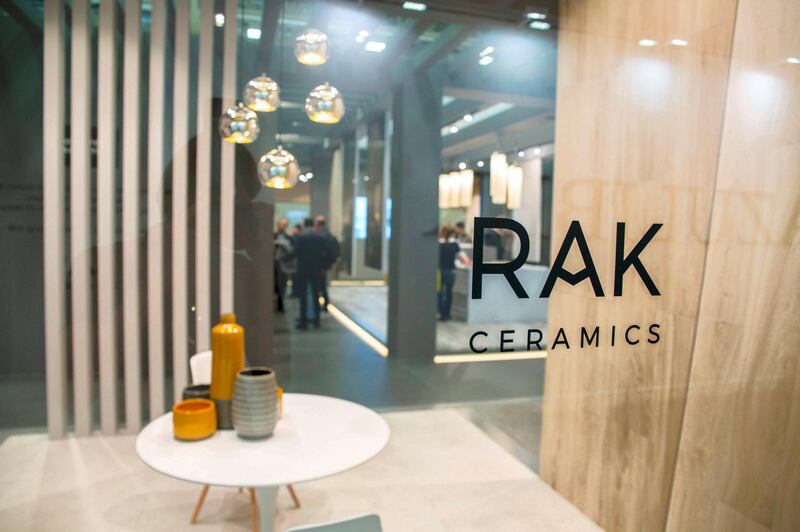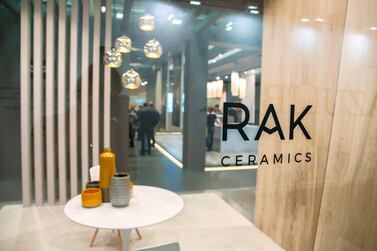RAK Ceramics, one of the world's biggest producers of ceramics, swung to a second-quarter loss as revenue fell amid the economic slowdown induced by the coronavirus pandemic.
The company reported a loss of Dh11.6 million for the three months ending June 30, compared with a Dh61.2m profit in the same period last year, according to a statement to the Abu Dhabi Securities Exchange, where its shares trade. The results for the quarter missed a Dh6m net profit estimate by EFG Hermes.
"The miss was mainly driven by weaker-than-expected operations, which was hit by pandemic-related lockdown[s] in its major markets," EFG analysts said in a note to clients on Tuesday.
RAK Ceramics' revenue for the period fell 37 per cent to Dh411.3m.
“RAK Ceramics’ revenue in all markets except Saudi Arabia was negatively impacted due to Covid-19 in the second quarter of 2020,” the company said. “There was a decrease in revenue in April and May as the business began to feel the impact of lockdowns and reduced demand in the construction, hospitality and airline industries.”
In the first half, profit plunged 84 per cent to Dh14.1m as revenue decreased 21 per cent to Dh1 billion, according to the company.
Founded in 1989, RAK Ceramics exports its products, which include sanitaryware and tiles, to more than 150 countries through a network of distributors in Europe, the Middle East and North Africa, Asia, North and South America and Australia. The company also has production plants in India and Bangladesh.
The company said its implementation of operational measures to mitigate the impact of Covid-19 resulted in early signs of recovery from June 2020 onwards across the business.
Production has restarted in Bangladesh and India in phases, but the tableware business has been "severely impacted" because of the slowdown in the hospitality and airline industries. That segment of the business is currently operating at 65 per cent capacity.
Production lines in the UAE were optimised during the downturn and picked up pace at the start of July to meet rising demand from Saudi Arabia.
"Going forward I am cautiously optimistic on revenues. We saw a recovery in June and July, and August is going well. If nothing happens, we are going to recover," Abdallah Massaad, group chief executive of RAK Ceramics told The National.
The company is now “going into the way of normality”, in its core markets including the UAE, Saudi Arabia, Europe and Bangladesh, he added.
“India will take [a] little time, while we are growing in Saudi Arabia with sales rising 30 per cent in the first half of this year.”
The imposition of anti-dumping duties on tiles imported from India and China and the reopening of Saudi Arabia's borders in June supported increased demand for RAK Ceramics' products, the company said.
In April, the GCC Industrial Cooperation Committee approved the imposition of anti-dumping duties on ceramic tiles imported from India and China. Imports from India face duties ranging from 17.6 per cent to 106 per cent, while duties on Chinese imports are between 23.5 per cent and 76 per cent. The measures came into force on June 10.








